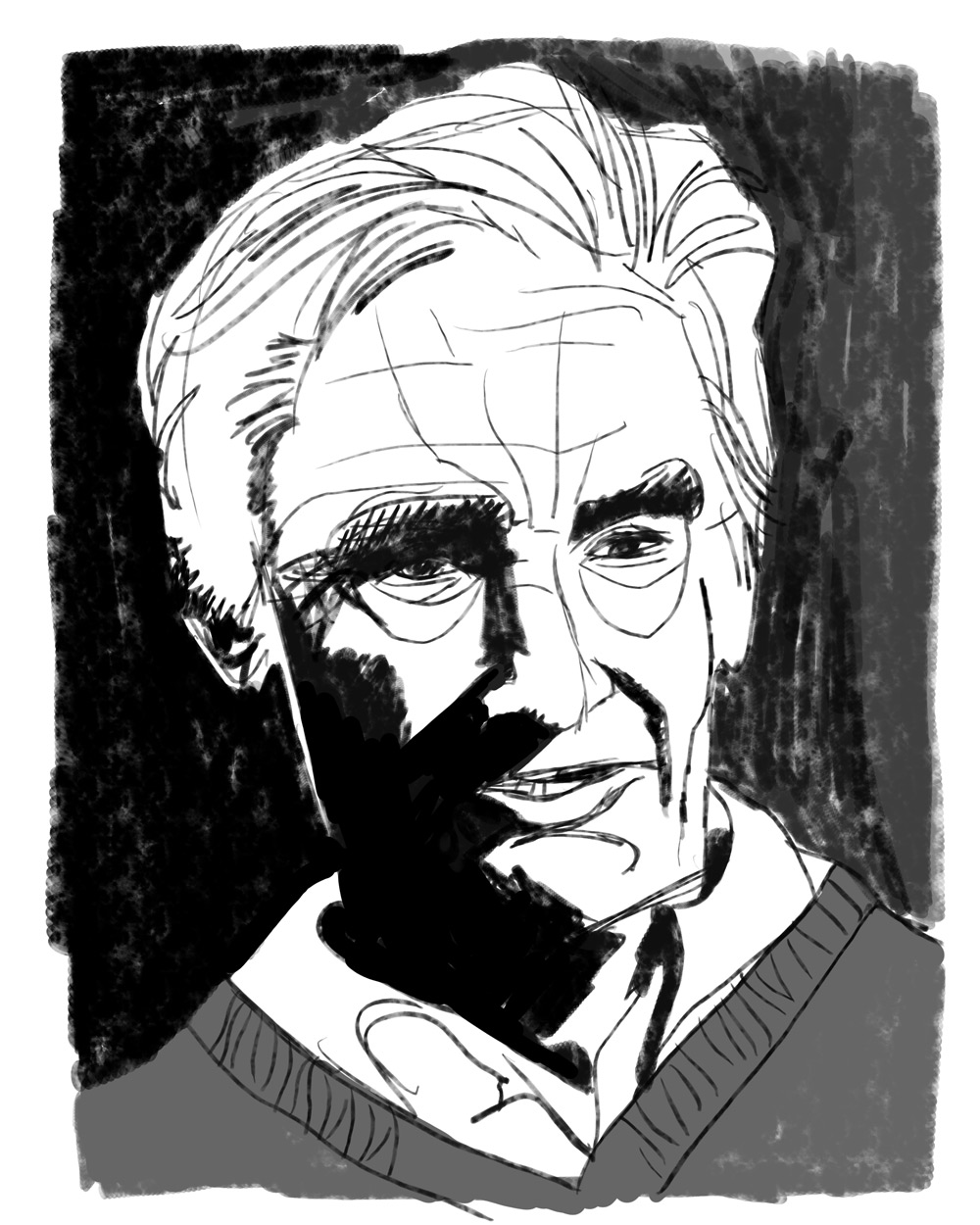The Weekly Beast Volume V (Originally Appeared in the Lariat 3/10/10)
Will Hunting paces around his psychologist’s office. He scans the book case and notices a rather generic book title, he breaks the silence, "A History of the United States, Volume I," he pauses as he continues on examining the large bookcase, “If you want to read a real history book, read Howard Zinn's A People's History of the United States." This quote is from the 1997 film Good Will Hunting which won the Academy Award for Matt Damon and Ben Affleck who wrote the original script. Howard Zinn was already 73 years of age when this film was produced, and was still actively speaking at college campuses and penning best-selling works on politics and history. If one were to open up the Los Angeles Times a month ago perhaps on the 7th page in or so you’d run into a standard 6 inch obituary-Howard Zinn’s name was on it. Howard Zinn passed away January 27th in Santa Monica, California he was 87 years old. America has truly lost someone invaluable. But what does his death mean to students and teachers?
I sat down with students and professors here at Saddleback to discuss who Zinn was for them. I walked into Professor Mike Merrifield's office first, being the fire-brand radical that he is he seemed delighted to discuss Zinn and his impact on society. He compared Zinn's writing to his own field of expertise, Anthropology. "In Anthropology one of the things we do is break down mythologies, and that's what he's done in his historical work." Merrifield went on to talk about his first exposures to Zinn and his thoughts. He first heard Zinn on KPFK 90.7 FM about twenty years ago. If hed had to sum up Zinn's greatest achievement he stated that other than his particular account of the history of the people of the United States, "Howard stayed true to form. He held to his principles."
After talking to a few faculty members in the Social Sciences department an e-mail and a phone call later I found myself sitting in Professor David DiLeo's office 24 hours later. As soon as I got comfortable and spat out my first question someone came rapping at the door. Chris Rouse a fellow history student walked in. We all exchanged short greetings and got down to business. Professor Dileo continued responding to my question regarding Zinn's importance to students. According to Dileo Zinn's writings are important because, "the story he tells is more reflective of their lives-He's writing books about working class people which is congruent to the lives of students." However he did mention that he wanted to distance himself from his younger more "impressionable" colleagues by declaring that he is no "Zinn Cultist." I decided to kill two birds with one stone and ask for Chris' opinion as well. I told Chris I was recording to let him know that what was saying was on the record. I asked him why Howard Zinn was important to students. His response was eloqent and well put: "He paid attention to people who are ignored. He gave a voice to those who are traditionally voiceless."
I decided to interview two other students. Jon Raissi, a transferring Anthropology major commented on his first experiences of Zinn. "Initially I was assigned to read Voice's of a People's History by one of my history professor. I was blown away by his ability to narrate the history of American dissent in such an in-depth way." Jon went on to talk of Zinn as a pioneer of alternative history writing. A Geography major by the name of Nika Daroui age twenty spoke highly of Zinn stating that "Howard Zinn has made me question everything I learned about history during high school." She articulated Zinn's difficulty as a historian stating that he was a historian with a definite perspective presented in a very neutral way. Professor Andrew Dzida was next on my hit list of interviewees. Professor Dzida teaches Philosophy at Saddleback. We discussed his first experiences, and lasting impressions of the historian. "I saw him interviewed a while back on Bill Moyers." Dzida revealed that he hadn't heard Zinn speak much until recently, he said he'd been meaning to read The People's History of the United States for a quite some time. He did mention that he saw bits and pieces of "The People Speak." Recently Zinn along with Matt Damon produced The People Speak a series of dramatic performances of political speeches and dissenting poetry. Dzida elaborated on his feelings about the film, "He got me thinking about social justice issues in general-even the ethical question of fair wages, or living wages."
Many pundits on the right would love to dismiss Howard Zinn as a mere polemicist. Some people have gone as far as trying to rob Zinn of his well-earned title as a historian. (see Sean Wilentz’ contribution to the LA Times’ posthumous panel discussion of Zinn) No matter how people try to distort the memory of the man one thing is undeniable he was truly a historian of the people. His landmark work, A People’s History of the United States sold over two million copies, and is on many professors syllabi across the country as required reading for U.S. History classes. The text is mostly interested in dismantling what is normally thought of as history, (e.g. glorified nationalistic fairy tales excluding regular people from the process of making history). Howard Zinn wanted to bring to light those who were marginalized, distorted or omitted from the pages of history: women, feminists, socialists, anti-war resisters during World War I, and World War II, and the working-class. Zinn’s most important lesson may be ,"If you don't know history, it is as if you were born yesterday."
Identity, love and death
8 years ago























